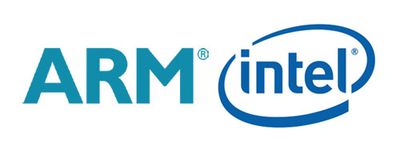
Be Inc. founder and former Apple employee Jean-Louis Gasse weighs in with his take on the recent announcement by Intel on the 3-D transistor technology as well as rumors that Apple might switch to ARM. Gasse spells out Intel's complete absence in the mobile market and how the 3-D transistor technology is supposed to address that, though he isn't particularly optimistic just based on the announcements alone:
Well have to wait a year to see how this markitecture translates into actual devices. Wall Street didnt pay much attention. Weve been here before: The product of the announcement is the announcement. (And theres the suspicion that breakthrough revelations are an attempt to mask a lack of spanking new products.)
As for Apple moving to ARM? Gasse simply doesn't see how ARM can fulfill Apple's high end system requirements:
Today, going ARM is technically feasible on entry-level Macs. Tomorrow, newer multicore ARM chips might work for middle-of-the-line Macintosh products. But will Apple abandon the faster x86 processors at the high end just to avoid the kind of forking that awaits Windows in its own move to ARM? If not, well again see Universal applications (a.k.a. fat binariestwo versions inside the same container), just as we did with the PowerPC to x86 transition. Microsoft is doing it because it must; Apple did it because the PowerPC didnt have a future. But now?






















Top Rated Comments
It doesn't matter whether Apple uses Intel or ARM chips. They have already shown with OSX and iOS they can support both architectures on a low-level. The interface elements and support services for those operating systems are optimized for the primary platforms they are targeted to support - iOS for portable touch interface devices, OSX for more complex applications which require more detailed user interaction. There are those applications that span both platforms, like Safari, but for the most part you don't want to run apps optimized for iOS on OSX, and vice versa. The sticky parts are the "in-betweens" - there are times you would like a tablet to function more like a laptop, or a desktop use some sort of touch interface. Apple's development tools and core libraries have come a long way, and are some of the best in the business, and with the explosion of iOS apps there are a lot more Apple developers now. Most developers do not need to access the OS at a level that would matter whether there was an Intel or ARM CPU in it. Or at least Apple does not want them too. The whole issue of FAT binaries is moot to Steve, because of the App store. You will download the version of the software that runs on the architecture you are using. Developers want to connect to customers who will provide a steady income stream. Like Stream has done with games, you will be able to run the same app on multiple platforms depending on your license. The app store model helps fight software piracy for developers too. The big fight won't be over the chips, the operating system, or the applications. It will be over your data - will you control it locally, or will you give control of it up to Apple, Google, Microsoft, Amazon, Facebook and the "cloud"?
The main advantage of 64bit apps on the Intel platform (other than increased memory addressing) of having access to more registers is simply not a problem with ARM processors and since the new ARM processor has 40 bit addressing which allows the computer to address more than enough RAM for the foreseeable future of consumer and even pro machines there is no real backwards move at all.
Amen, glad to see we are vindicated after two moronic posts on p.1 and 2 on apple switching their notebooks to arm, by none less than y Gassee.
I'm curious why this doesn't make sense -- as I understand it, the primary advantage of 64-bit architectures outside of specific scientific applications is simply the ability to address more than 4GB of RAM. If you have a system to address that (e.g. a 40-bit address space), where's the problem?
Particularly if a 32-bit, many-core ARM architecture allows significant power per watt advantages.
I'd bet they had 2 prototype light notebooks - a close call between MacOSX-based MacBook Airs, vs iOS-based "iBook Airs". They'd both run Pages, iMovie etc... and I assume once iOS5 and OSX-Lion are released the 2 would look VERY similar in many ways.